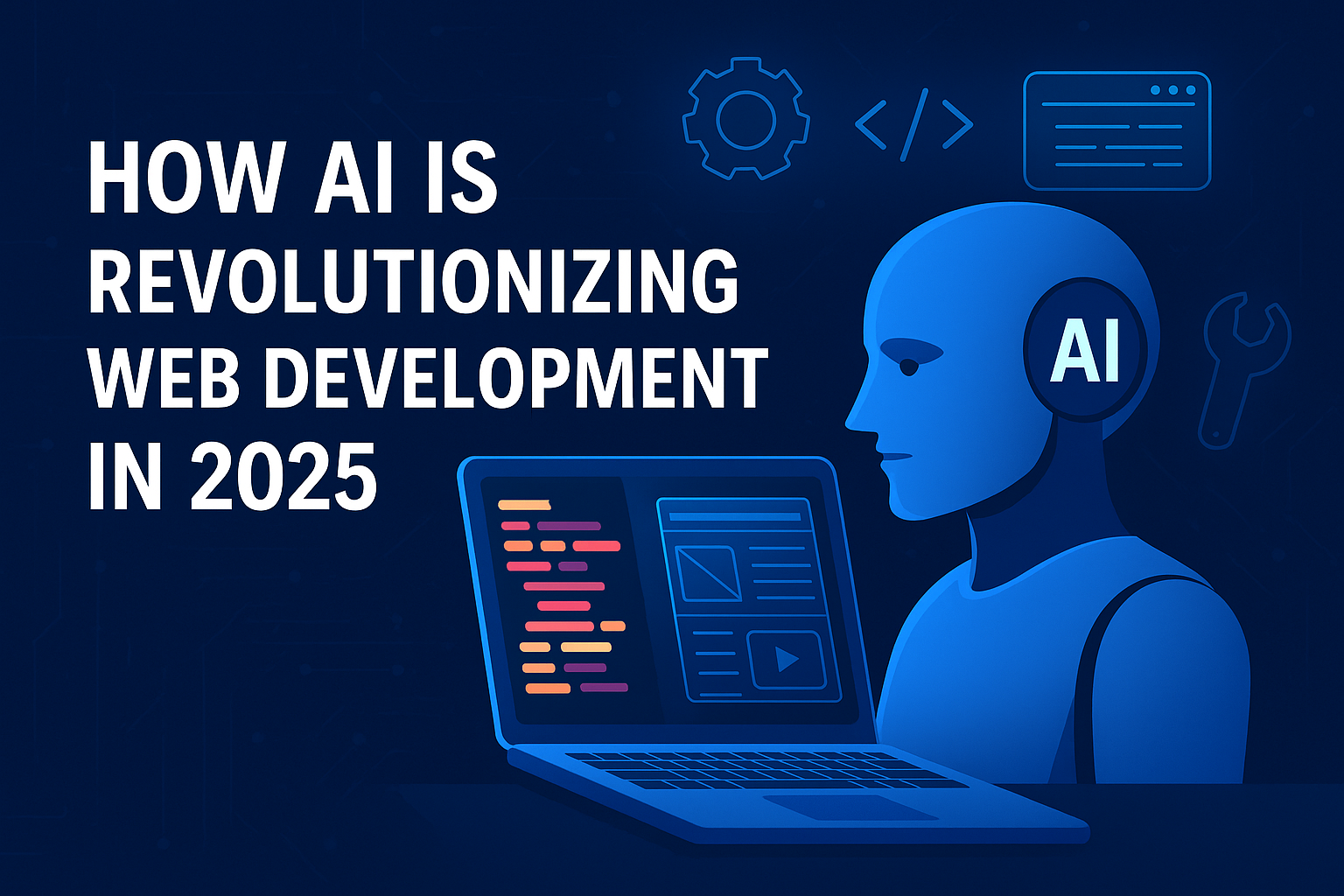Introduction
Artificial Intelligence (AI) is revolutionizing the landscape of software development, particularly in web development. From automating mundane coding tasks to enhancing user experiences, AI is becoming an indispensable tool for developers. This article delves into how AI is reshaping web development, exploring its applications, benefits, challenges, and the future it heralds for developers.
Table of Contents
- Understanding AI in Web Development
- Benefits of Integrating AI into Web Development
- AI-Powered Tools Transforming Web Development
- AI in Front-End Development
- AI in Back-End Development
- AI in UI/UX Design
- AI in Testing and Quality Assurance
- AI in SEO and Content Optimization
- Challenges and Limitations of AI in Web Development
- Future Trends: AI and Web Development
- Case Studies: AI in Action
- Best Practices for Implementing AI in Web Development
- Ethical Considerations in AI-Driven Web Development
- Conclusion
- FAQs
Understanding AI in Web Development
Artificial Intelligence refers to the simulation of human intelligence in machines programmed to think and learn. In web development, AI encompasses various technologies like machine learning, natural language processing, and computer vision to automate tasks, enhance user experiences, and optimize performance.
Benefits of Integrating AI into Web Development
- Automation of Repetitive Tasks: AI can handle routine coding tasks, allowing developers to focus on more complex aspects.
- Enhanced User Experience: AI analyzes user behavior to personalize content and improve engagement.
- Improved Decision Making: Data-driven insights provided by AI assist in making informed development decisions.
- Cost and Time Efficiency: Automating tasks reduces development time and costs.
AI-Powered Tools Transforming Web Development
- GitHub Copilot: An AI pair programmer that suggests code snippets and functions.
- ChatGPT: Assists in generating content, debugging, and providing coding solutions.
- Uizard: Transforms hand-drawn sketches into functional UI designs.
- Wix ADI: Uses AI to create websites based on user inputs.
- Tabnine: Provides code completions using machine learning models.
AI enhances front-end development by:
- Automated Design Suggestions: AI tools can suggest design elements based on user preferences.
- Responsive Design Optimization: AI ensures websites are optimized for various devices.
- Accessibility Improvements: AI identifies and rectifies accessibility issues to comply with standards.
In back-end development, AI contributes by:
- Database Management: AI optimizes database queries and structures for efficiency.
- Security Enhancements: AI detects and mitigates potential security threats.
- Server Load Balancing: AI predicts traffic patterns to manage server loads effectively.
AI in UI/UX Design
AI revolutionizes UI/UX design through:
- User Behavior Analysis: AI analyzes user interactions to improve design elements.
- Personalized Experiences: AI customizes interfaces based on individual user preferences.
- A/B Testing Automation: AI automates testing of different design versions to determine effectiveness.
AI in Testing and Quality Assurance
AI enhances testing by:
- Automated Test Case Generation: AI creates test cases based on code changes.
- Bug Detection: AI identifies and suggests fixes for bugs in the code.
- Performance Monitoring: AI continuously monitors application performance and alerts for anomalies.
AI in SEO and Content Optimization
AI aids in SEO by:
- Keyword Analysis: AI identifies optimal keywords for content.
- Content Generation: AI creates SEO-friendly content tailored to target audiences.
- Performance Tracking: AI monitors SEO metrics and suggests improvements.
Challenges and Limitations of AI in Web Development
- Data Privacy Concerns: Handling user data requires stringent privacy measures.
- Dependence on Quality Data: AI’s effectiveness is contingent on the quality of data it processes.
- Complexity in Implementation: Integrating AI into existing systems can be challenging.
- Ethical Considerations: Ensuring AI decisions are fair and unbiased is crucial.
Future Trends: AI and Web Development
- Increased Personalization: AI will offer more tailored user experiences.
- Voice Search Optimization: With the rise of voice assistants, optimizing for voice search becomes essential.
- AI-Driven Chatbots: More sophisticated chatbots will handle complex user interactions.
- Predictive Analytics: AI will predict user behavior to enhance engagement.
Case Studies: AI in Action
- Netflix: Uses AI to recommend content based on user preferences.
- Amazon: Employs AI for personalized shopping experiences and efficient logistics.
- Spotify: Utilizes AI to curate playlists tailored to individual tastes.
Best Practices for Implementing AI in Web Development
- Start Small: Begin with integrating AI into specific areas before a full-scale implementation.
- Ensure Data Quality: Use accurate and relevant data to train AI models.
- Monitor Performance: Continuously assess AI’s impact and make necessary adjustments.
- Stay Updated: Keep abreast of the latest AI developments and tools.
Ethical Considerations in AI-Driven Web Development
- Transparency: Clearly communicate when AI is used in applications.
- Bias Mitigation: Ensure AI models are trained on diverse datasets to avoid biases.
- User Consent: Obtain user consent when collecting and using their data.
- Accountability: Establish protocols for addressing AI-related issues.
Conclusion
AI is undeniably transforming web development, offering tools and capabilities that enhance efficiency, personalization, and user engagement. While challenges exist, the benefits of integrating AI into web development are substantial. By embracing AI thoughtfully and ethically, developers can create innovative, user-centric web applications that meet the evolving demands of the digital landscape.
FAQs
Q1: How does AI improve user experience in web development?
AI analyzes user behavior to personalize content, streamline navigation, and provide real-time assistance, enhancing overall user satisfaction.
Q2: Can AI replace web developers?
While AI automates certain tasks, it complements rather than replaces developers, allowing them to focus on more complex and creative aspects of development.
Q3: What are some AI tools suitable for beginners in web development?
Tools like Wix ADI and ChatGPT are user-friendly and assist beginners in creating and managing websites effectively.
Q4: How does AI contribute to SEO?
AI helps in keyword analysis, content optimization, and performance tracking, thereby enhancing a website’s visibility on search engines.
Q5: What ethical considerations should be taken when using AI in web development?
Developers should ensure transparency, mitigate biases, obtain user consent, and establish accountability measures when integrating


